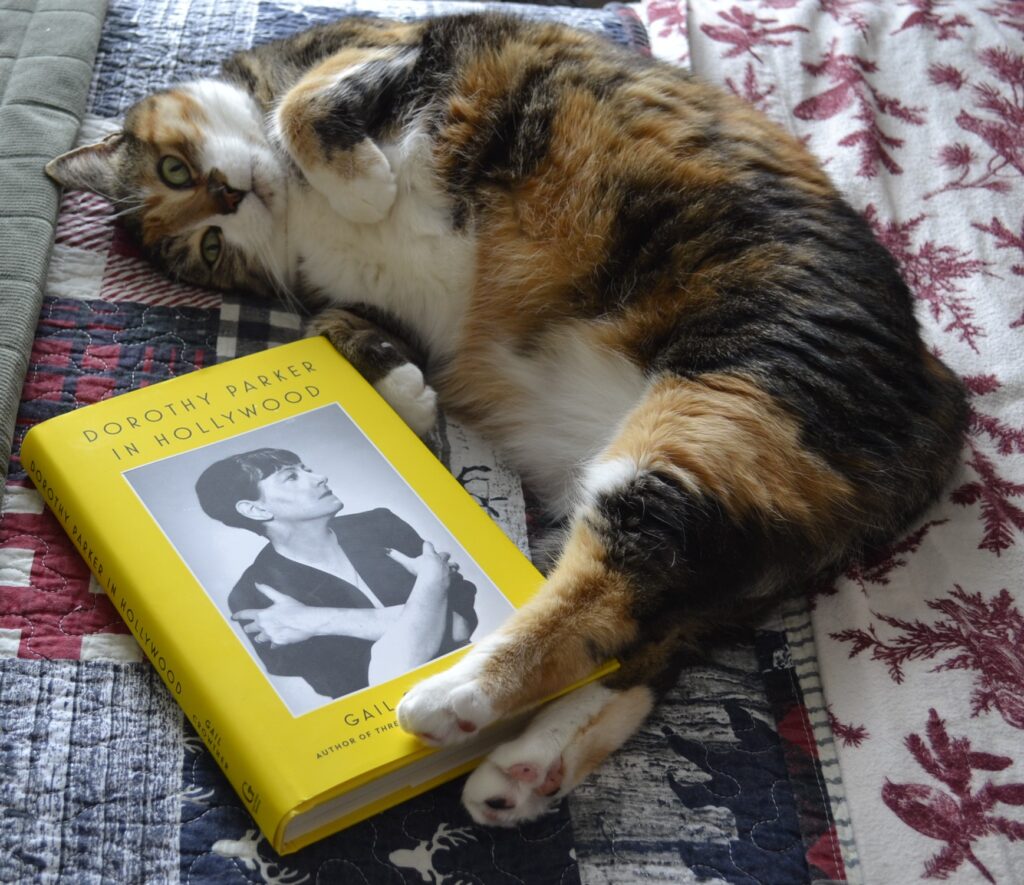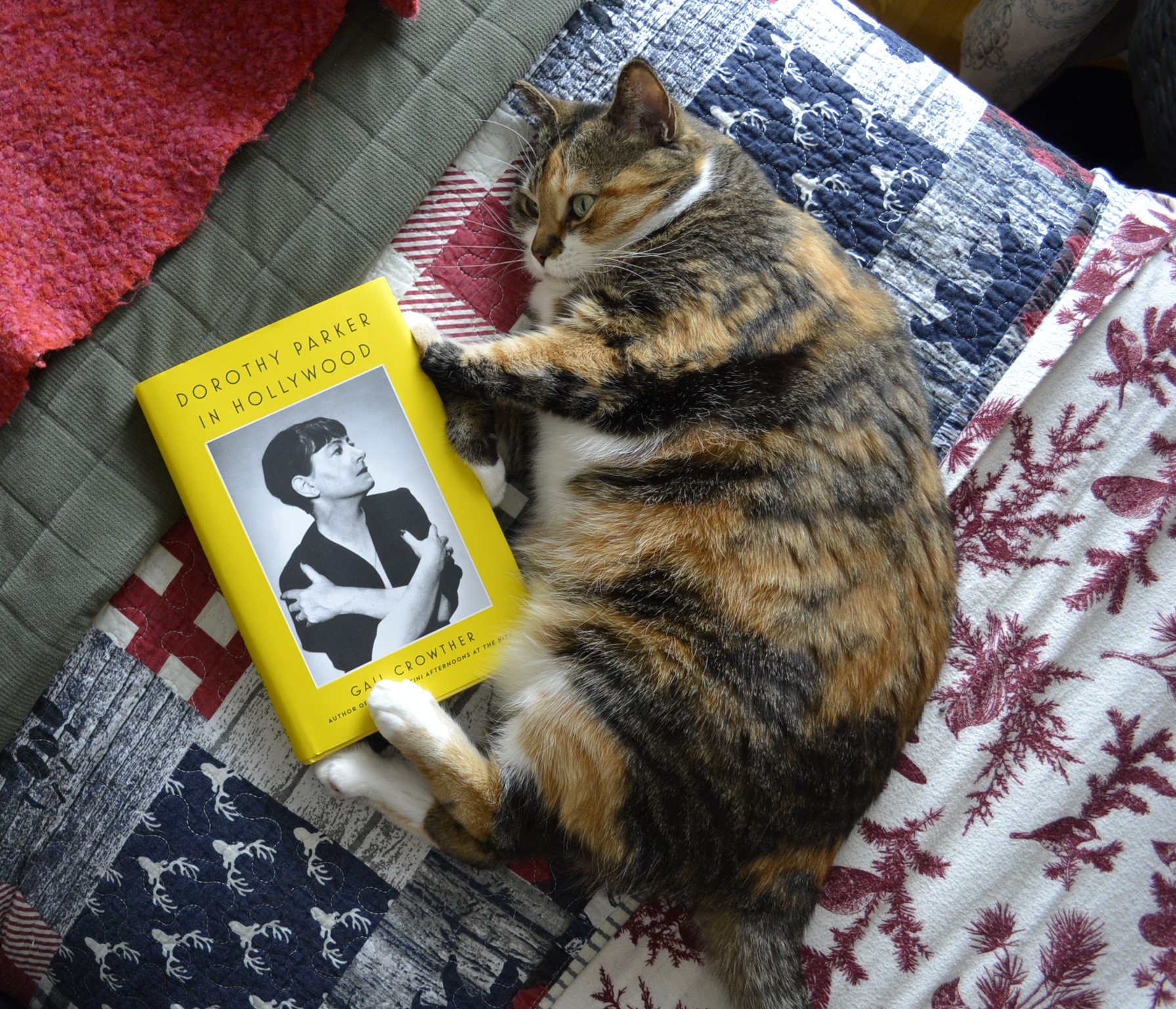Playing A Quiet Game
This week our basement has started to put back to rights, which means long days full of contractors putting in drywall, baseboards, replacing cabinets, etc. Our mornings start much earlier than we are used to — well before eight o’clock — and that has been an adjustment that my brain seems to be utterly unwilling to make. My frayed nerves make it not so difficult to get up early, but they make it impossible to go to bed at a time that would allow me to get anything approaching an adequate amount of rest.
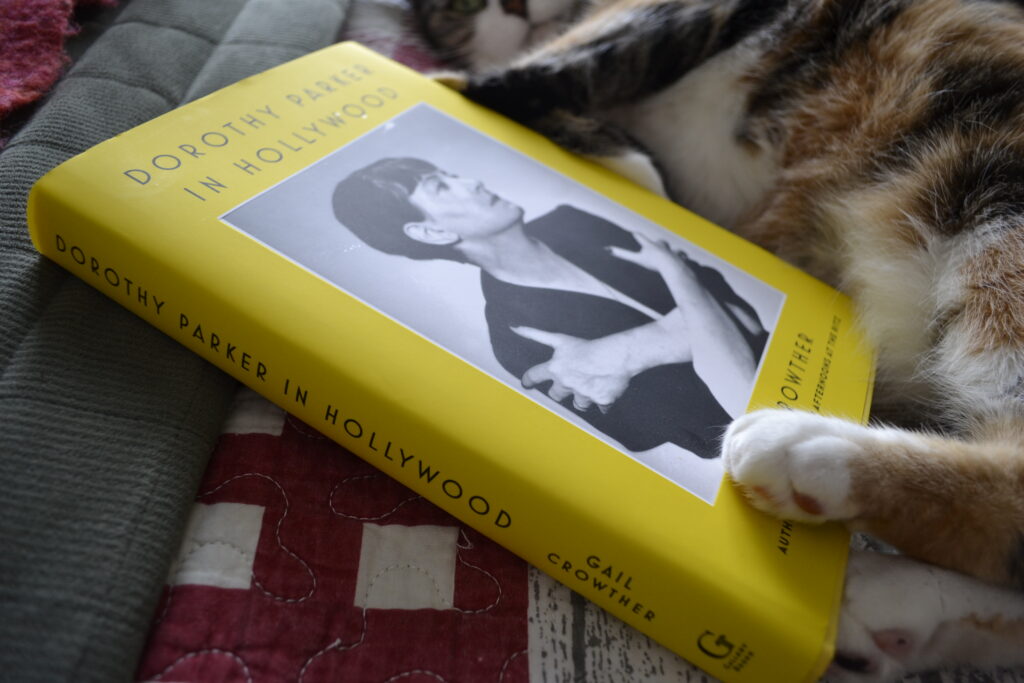
Schedule alterations aside, the worst part? We have to play the quiet game. What is the quiet game? Well, it’s not so much a pastime as a necessity because my anxiety gets agonizingly focussed on sounds or voices in the basement, always twisting them into more bad news or disasters. So I wear earplugs (coincidentally, Loop makes earplugs that not only fit my strange ears but also work wonderfully), and put headphones on top of those earplugs so my world is plunged into complete silence. For eight hours. For days on end.
It’s hard. Because usually we work in our sitting room while constantly conversing and simultaneously listening to music. Now we have to use the notebook in the phone to communicate and we are confined to just our sitting room. No errands. No breaks to get coffee or go on a walk in the sunshine.
I really miss our normal, very slow, and very quiet day-to-day existence. And there’s really no end to this altered one in sight.
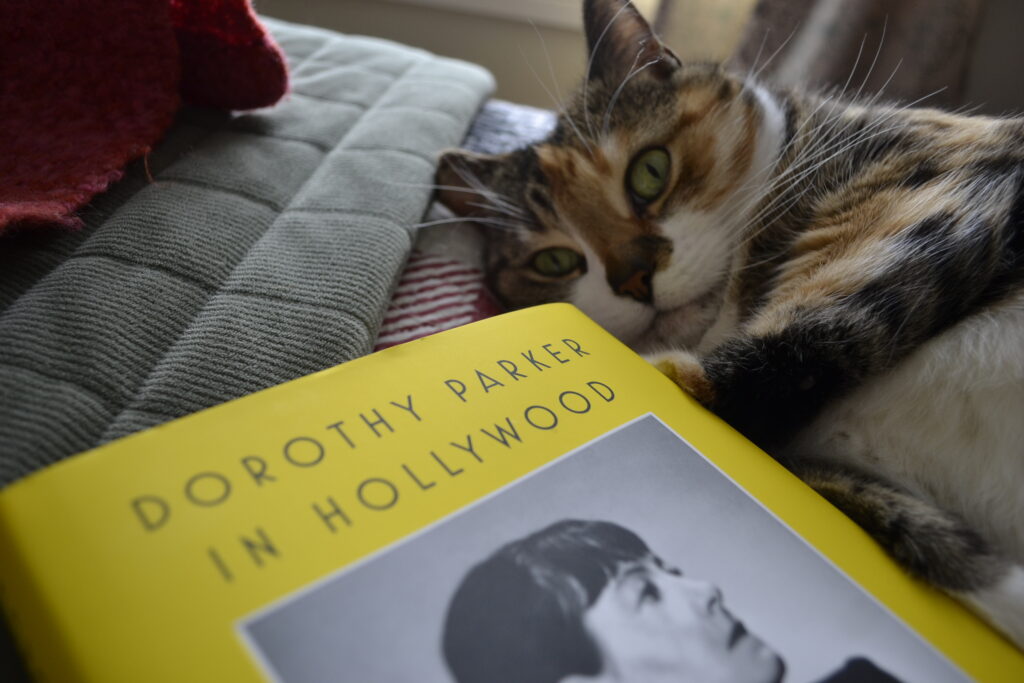
A Bit of a Departure
So normally I keep myself to books ten years old at newest, but I decided I would branch out a bit in this extra week of Women’s History Month for two reasons. Firstly, because I’ve been reading and enjoying a few non-fiction books about writers and artists and want to share them. Secondly, because I am planning to do an entire month of reviews of classic books about the movies and this biography is an excellent segue into that content.
It’s labelled a biography, but Gail Crowther’s Dorothy Parker in Hollywood is really more than that. It’s more of an analysis on who Parker was as a writer and who she was beneath the veneer that others shellacked her with, attempting to freeze her in time and space — that being New York and the Algonquin Hotel circa the late 1920s. Crowther examines specifically what drew Parker to writing and eventually to writing for film, and the influence that her time in Hollywood had on her life and the lives of writers she knew. It’s a book written with style, but style that only magnifies the painstakingly researched substance.
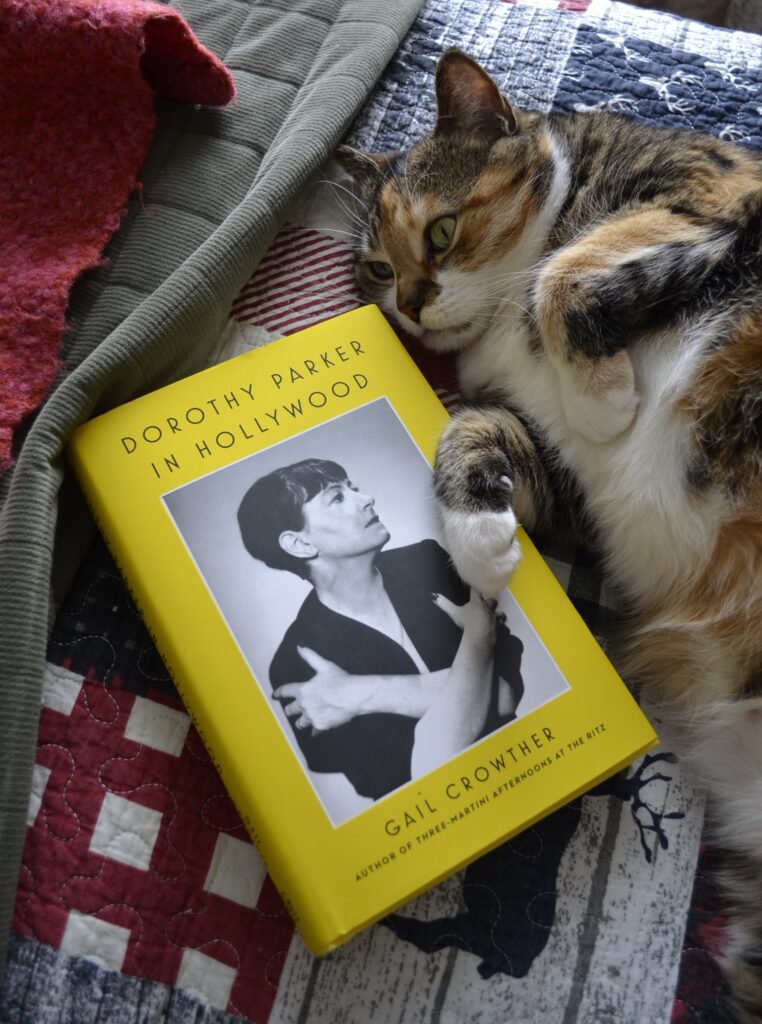
On Dorothy Parker
I came late to the work of Dorothy Parker and I came to it in a piecemeal way that I think many modern readers come to it. I knew she was a famous wit. I knew that she picked a lot of fights. I knew she was a writer of many snappy bon mots. But when it came down to it, I didn’t really know who she was or much about her longer work, let alone her writing for film. Honestly, I knew more about the saga of Parker’s mortal remains being stored in a filing cabinet for decades than I did about her.
I saw Dorothy Parker in Hollywood at my local independent bookstore, and it was a bit of an impulse buy born of an urge to learn more about the source for the quotations I knew and the McNally book of hilarious New Yorker articles I had just read (and reviewed here at the beginning of the month). I was not disappointed. Crowther strikes the perfect balance between a readable book and one that provides a lot of information. She manages to conjure up the atmosphere of old Hollywood when there were still dirt roads and expansive, arid vistas. Most importantly? She lets Parker breathe. She lets Parker’s words speak for themselves without drowning them in interpretation and fabricated nuance. That’s a difficult thing to do when Parker’s correspondence and paper legacy is so admittedly scant and scattered to the winds.
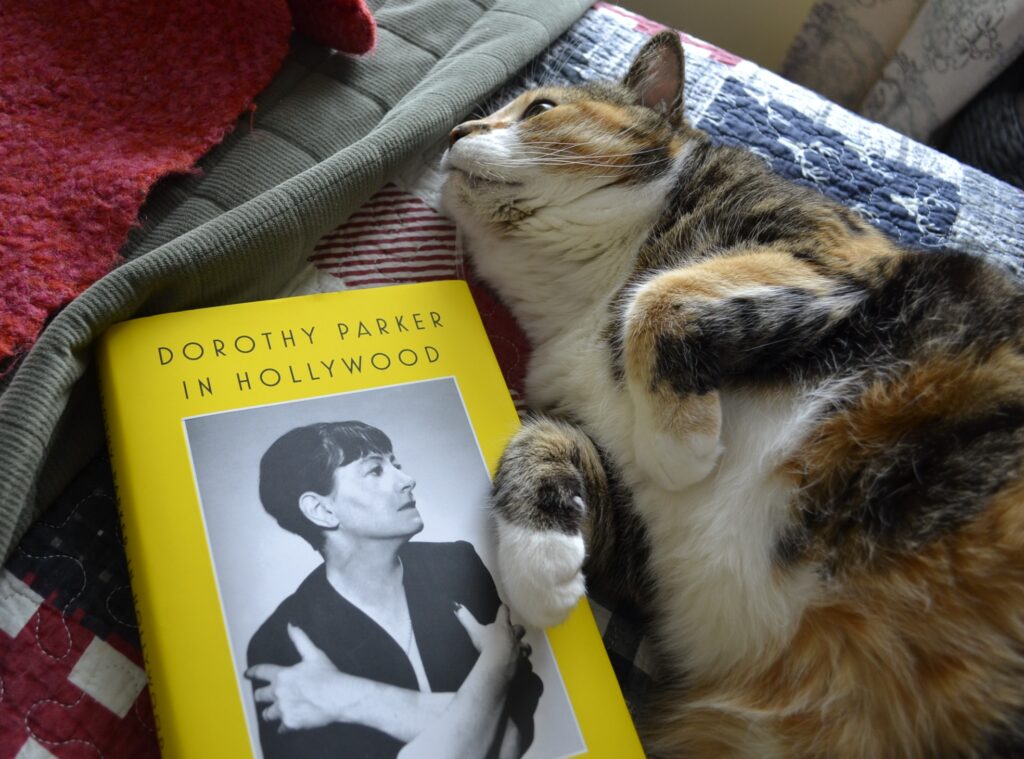
The Importance of Own Voices
One of the most successful aspects of this book is how adeptly Crowther points out the need for a perspective that originates in own voices. She highlights particularly that quite a few of Parker’s biographers were men and — though some were no doubt well-meaning — they brought a certain bias to their interpretations of her words and actions. There was also the bias of the times in which she dwelt, which tended to minimize women’s accomplishments while throwing an unnecessary spotlight on their domestic situations and pursuits. Parker was undoubtedly a woman that did not fit in to the proscribed roles of the women of her time. She was a vitriolic writer and personality, but she also liked to knit at production meetings. She was so many things living in an era when there were one or two things a woman was supposed to be.
Crowther does not shy away from a discussion of the constricting gender norms that Parker had to confront in her lifetime and how they impacted how she and her work were interpreted after her death.
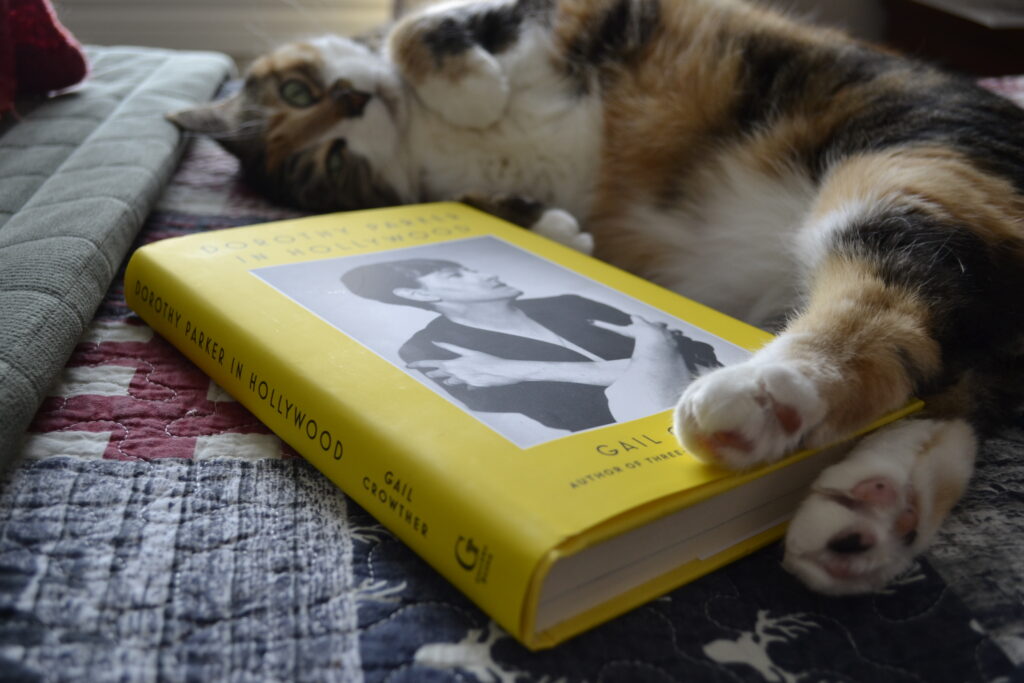
Good News for Wesker
To add to everything happening in the house and in the driveway, Wesker lost quite a bit of weight last week. Enough that we had to call the vet and put her on an appetite stimulant. I was upset and nervous and worried that even this wouldn’t work. I was wrong. She’s eating triple what she had been eating and she seems a lot more relaxed and contented.
When Wesker’s relaxed and contented, it feels like I can actually breathe again and not worry that my eldest is slowly slipping away from me.
